Downtown interests in several U.S. cities have launched pop-up programs to fill empty ground-floor space, giving entrepreneurs the chance to test their concepts and possibly sign long-term leases. Depending on the program, storefronts may house more than one retailer at a time. In most cases, public and philanthropic funds are helping the emerging businesses pay for rent, permitting, tenant improvements, insurance and other expenses related to setting up and running the shops.
Cincinnati
Nonprofit developer Cincinnati Center City Development Corp., or 3CDC, operates the Main Street Pop-Up Program on behalf of the city of Cincinnati. It focuses on the Over-the-Rhine neighborhood and is using some $300,000 in funding left over from a park renovation and expansion in the neighborhood, said Joe Rudemiller, a spokesperson for 3CDC, which also oversaw the park project.
Nearly 180 applicants across the service, retail, food-and-beverage and entertainment sectors have applied for pop-up space since the initiative began early last year, he said, and seven businesses currently occupy storefronts owned by 3CDC and by other property owners. A committee that includes representatives of the city and of property owners vet the applicants, and tenants sign up for at least six months. A pop-up can receive as much as $30,000 in funding, although no business has received that large of a grant yet, he noted.
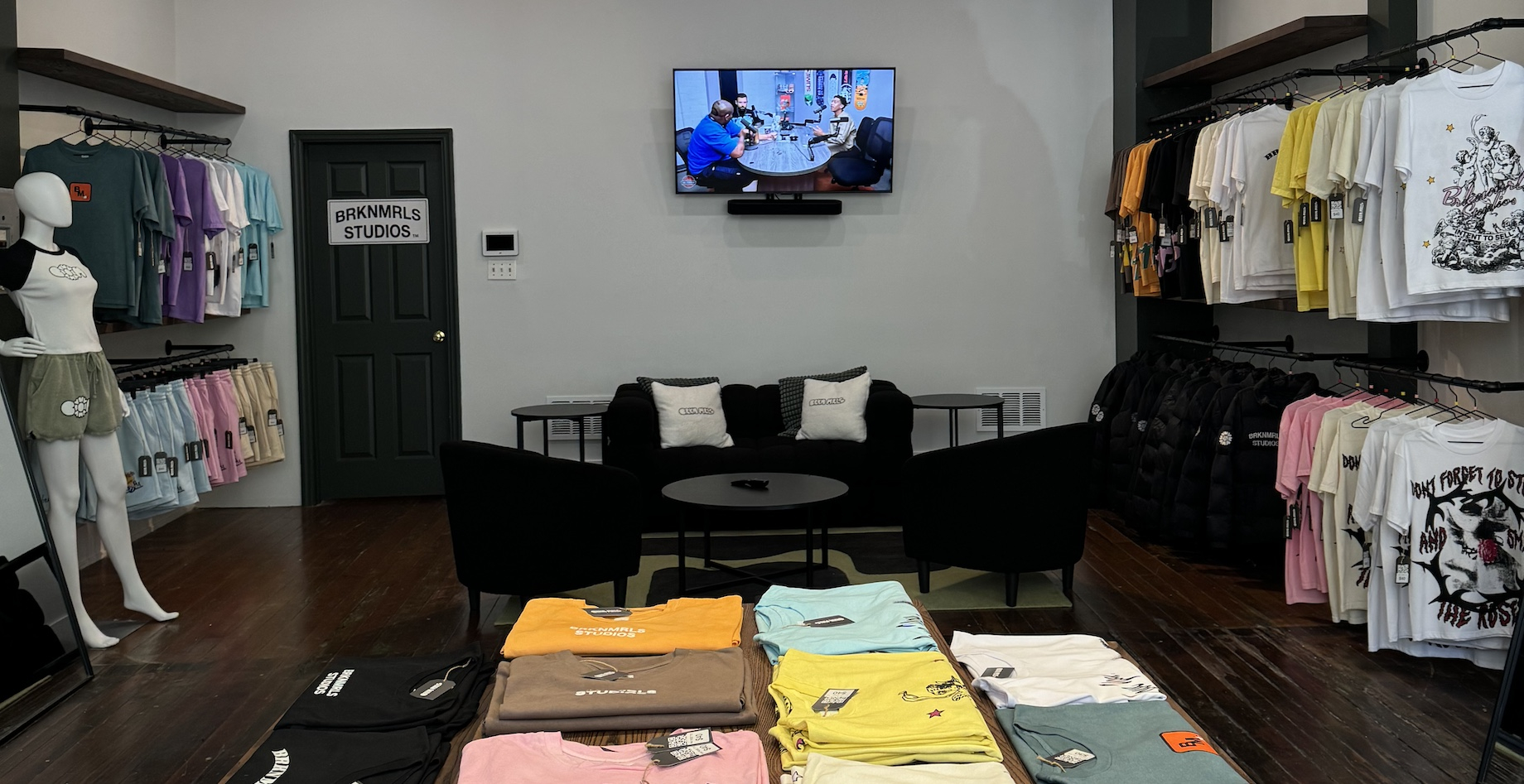
As part of the Cincinnati’s Main Street Pop-Up program, Brknmrls, a seller of “streetwear with a message,” has opened a pop-up in the Over-the-Rhine neighborhood. Photo credit: 3CDC
“We want to use the funds to meet businesses owners and entrepreneurs where they are,” Rudemiller explained. “It’s not a one-size-fits-all approach. What we’ve seen is that the type of business doesn’t matter as much as the level of passion these entrepreneurs have, and we want to make sure we’re pairing them with the space that works best for them and setting them up for success.”
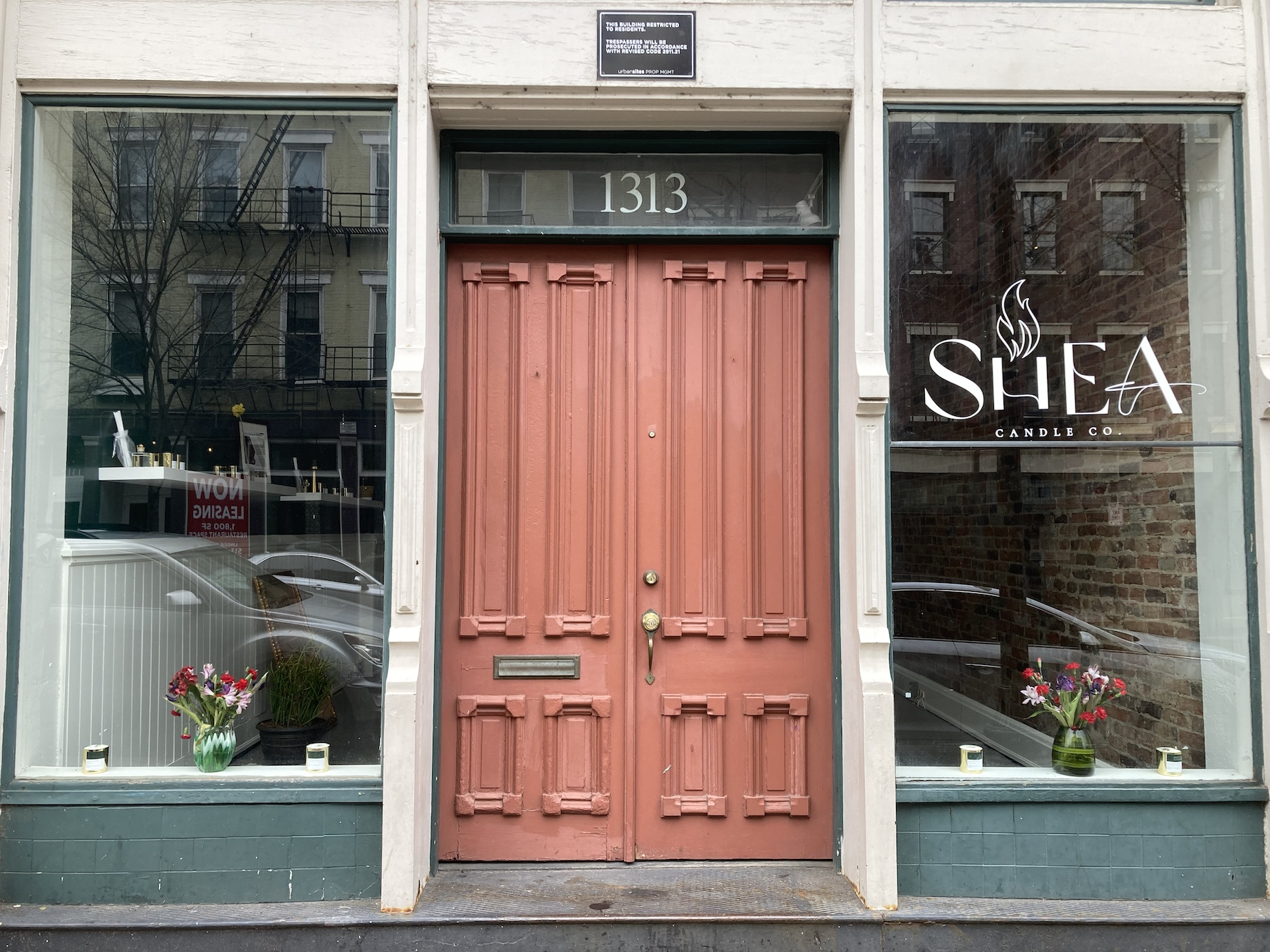
Woman-owned business Shea Candle also has popped up in Cincinnati. In addition to candles, the shop sells “anything that can make a room smell good,” including diffusers, incense and home sprays. Photo credit: 3CDC
Eastern Massachusetts
In Cincinnati and other cities, pop-ups tend to be digitally native stores that want brick-and-mortar presences, operators that want to move or expand to new locations, or businesses that have experience in temporary settings. In eastern Massachusetts, Allison Yee began sizing up the pop-up market in 2018 when she founded UpNext, a private business that sought to pair emerging retail brands with landlords. But in 2021, she expanded UpNext’s scope by creating Project: Pop-Up, a platform that works with municipalities to fill primarily Main Street storefronts as the economy reopened from pandemic lockdowns.
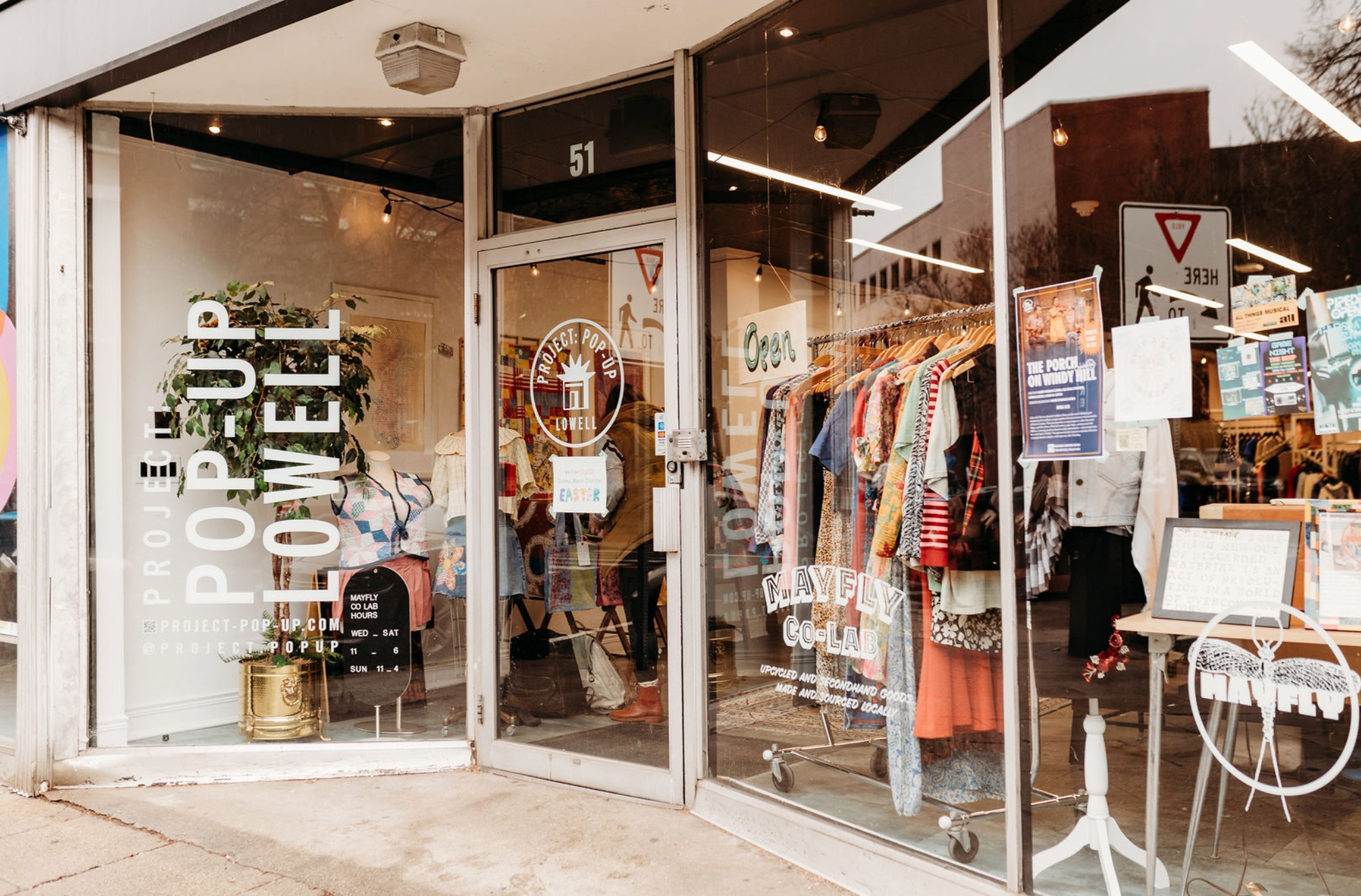
Early in 2024, retailer Mayfly opened a collective of sustainable local brands in Lowell, its second season in the storefront. Photo credit: Project: Pop-Up
Since then, Project: Pop-Up has placed some 70 entrepreneurs in more than 20 storefronts across communities like Newton, Melrose, Wakefield, Burlington, Lowell, Gloucester and Brookline. A grant from the Massachusetts Office of Business Development provided the initial funding, and Massachusetts Regional Economic Development Organizations have provided subsequent funds. Cities also have used American Rescue Plan Act resources to support Project: Pop-Up.

Over seven weeks during the 2023 holiday season, 11 brands rotated through an 80-square-foot space along Melrose, Massachusetts’ Main Street. Among them was Julie Estrella’s Aloha Lovely lifestyle brand. Photo credit: Project: Pop-Up
“I had a lot of experience working with brands, landlords and developers, but the pandemic introduced me to new partnerships with municipalities, which was a completely new world,” said Yee, who added that she focuses especially on providing women and Black, Indigenous and people-of-color-owned businesses with pop-up opportunities.
Project: Pop-Up initially arranged leases of three months between retailers and landlords, many at below-market rental rates. As funding from public sources increased and occupancies improved, it switched tactics. It would lease space itself for around a year and sublease it to pop-ups, typically on a seasonal schedule of three to five months. She suggested that programs like Project: Pop-Up could become permanent. “Even though the pandemic sparked this model, it could help local downtowns on an ongoing basis,” Yee said. “There’s such a huge need. We’re having a lot of conversations with cities and towns about how we can make this work because ultimately, that’s where the funding needs to come from.”
“We’re having a lot of conversations with cities and towns about how we can make this work because ultimately, that’s where the funding needs to come from.”
West Town Chicago
Some of those discussions have focused on using special assessment vehicles like business improvement districts to support pop-up efforts, she said. That’s the funding source that the West Town Chicago Chamber of Commerce tapped when it began its pop-up program in 2021. The chamber collects extra property taxes through a Special Service Area along several blocks in the neighborhood. Those taxes pay for property improvements, maintenance, art, security, advertising and other services.
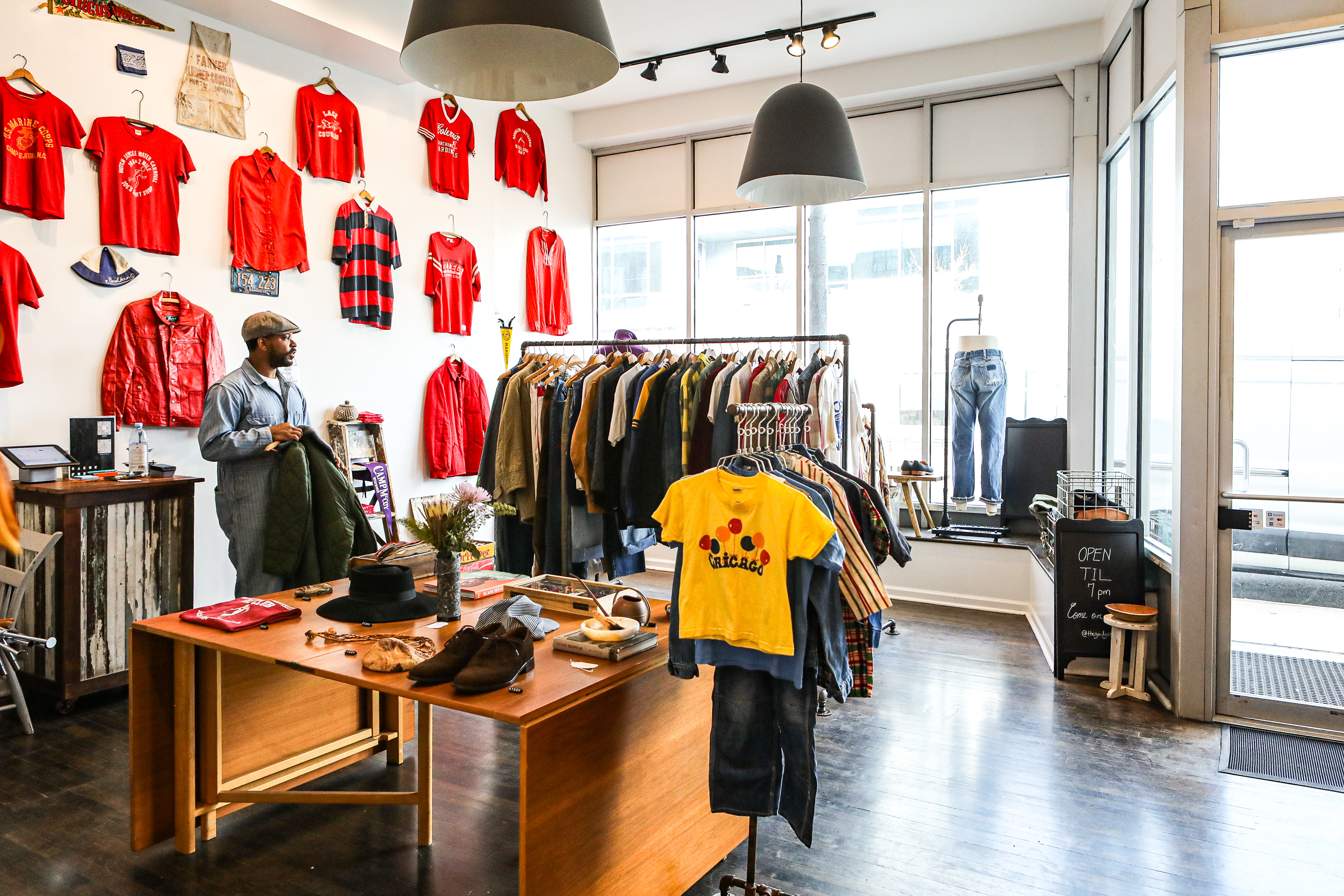
Emmanuel Edwards vintage clothing store The Goody Vault sells workwear, sportswear, militaria and custom reworked clothing made between the 1920s and 1990s. After operating as a pop-up in West Town Chicago, Goody Vault moved into studio space in the community. Photo credit above and at top: Ryan Beshel
The West Town Chicago Chamber of Commerce originally leased a vacant space next to its offices for pop-ups and used Special Service Area dollars to provide the pop-ups with discounted rent and other assistance, said Gaby Gerken, director of community development for the chamber. The program expanded to three spaces after receiving $200,000 in funding from the city of Chicago, which doled out $2.7 million in COVID-recovery grants to 15 community groups this year as part of its Small Business Storefront Activations program.
Those grants include American Rescue Plan dollars, which require that storefronts be given free rent, she said. But the federal funds have allowed the chamber to find space outside the Special Service Area footprint, including in an industrial area that’s experiencing an influx of new galleries and maker space. In West Town, pop-up tenants sublease from the chamber for three-month stretches, Gerken added. So far, the program has facilitated 23 pop-ups, eight of which have moved to permanent storefronts. She anticipates the total to reach 26 by the end of 2024.
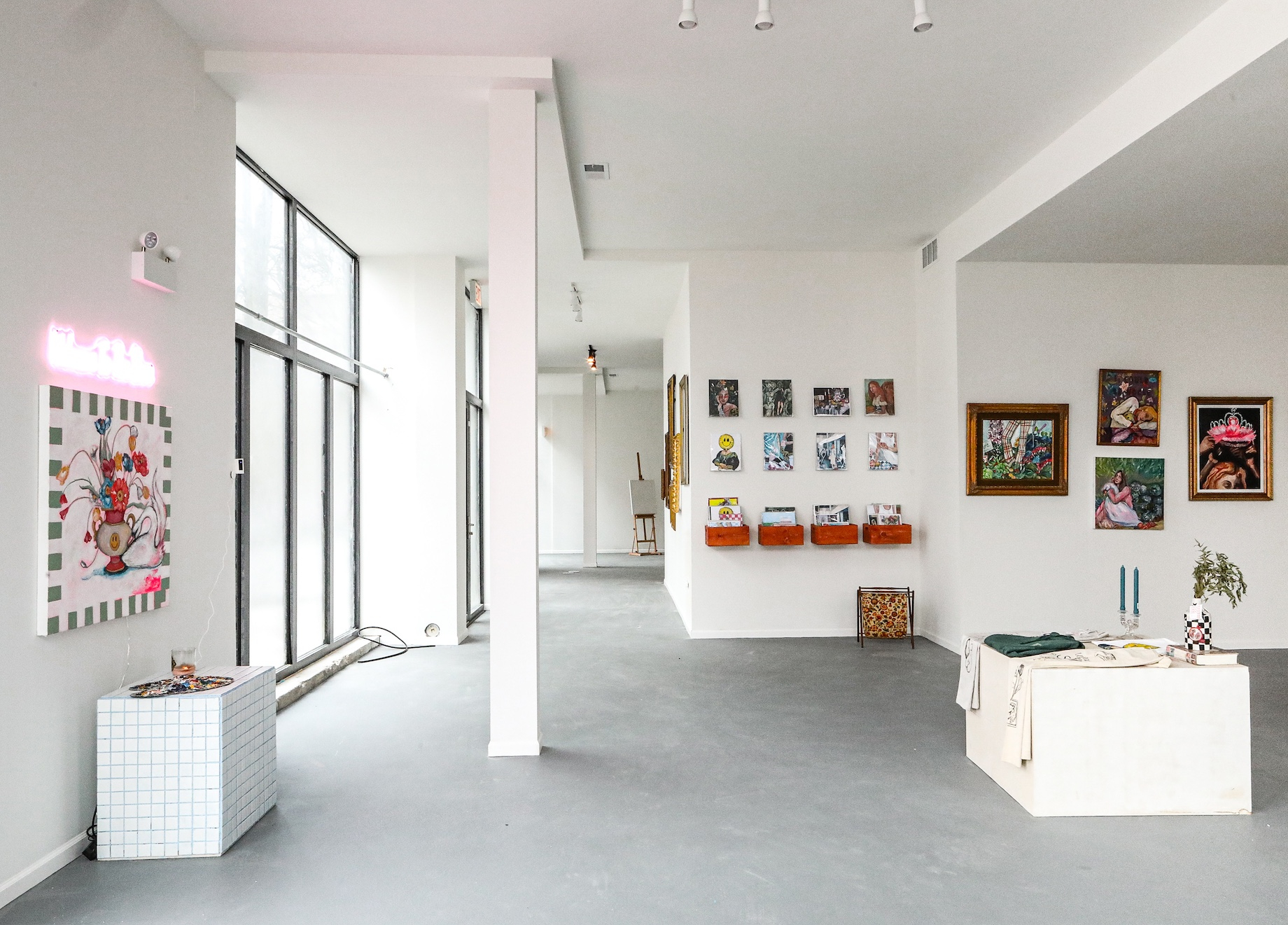
Another West Town pop-up, The Brie Show, featured the work of Brie Hines. She partnered with businesses and organizations to host special events during her lease and now is looking for studio space in the neighborhood. Click on the image to see Hines’ farewell post on Instagram upon closing of her tenure there. Photo credit: Ryan Beshel
“We’re a district that’s full of galleries and arts-based businesses, so those and clothing and accessories are users that we’ve leaned pretty heavily on,” Gerken stated. “But we’re looking at ways to do food-and beverage, like a pop-up cafe or a concept where someone could bring in pre-boxed food just to further explore what might gain traction.”
Pittsburgh
In 2023, the Pittsburgh Downtown Partnership saw an opportunity to revive a post-Great Recession pop-up program that had gone dormant. Emergency COVID funding had run its course, and the nonprofit community developer was searching for ways to reduce vacancy in the business district, said senior director of economic development Cate Irvin.
With financial support from the local Hillman Foundation and downtown property owners, PDP launched Project Pop-Up, which ultimately acts as a matchmaker between entrepreneurs and landlords. The one-year-old program provides as much as $15,000 to a given small business to cover utilities, insurance and other costs. Ideally, the pop-ups will receive free rent, Irvin said, though there may be some small fee associated with the space.
The program has received 94 applicants, but a six- to eight-week permitting process and potential buildout requirements created some early hiccups. “The goal is to fill a minimum of four to six storefronts on a rolling basis, with some staying on and signing a full-term lease,” Irvin pointed out. “We didn’t hit that goal in our first year, but we have a handful of pop-ups slated to open in the next month or so.”
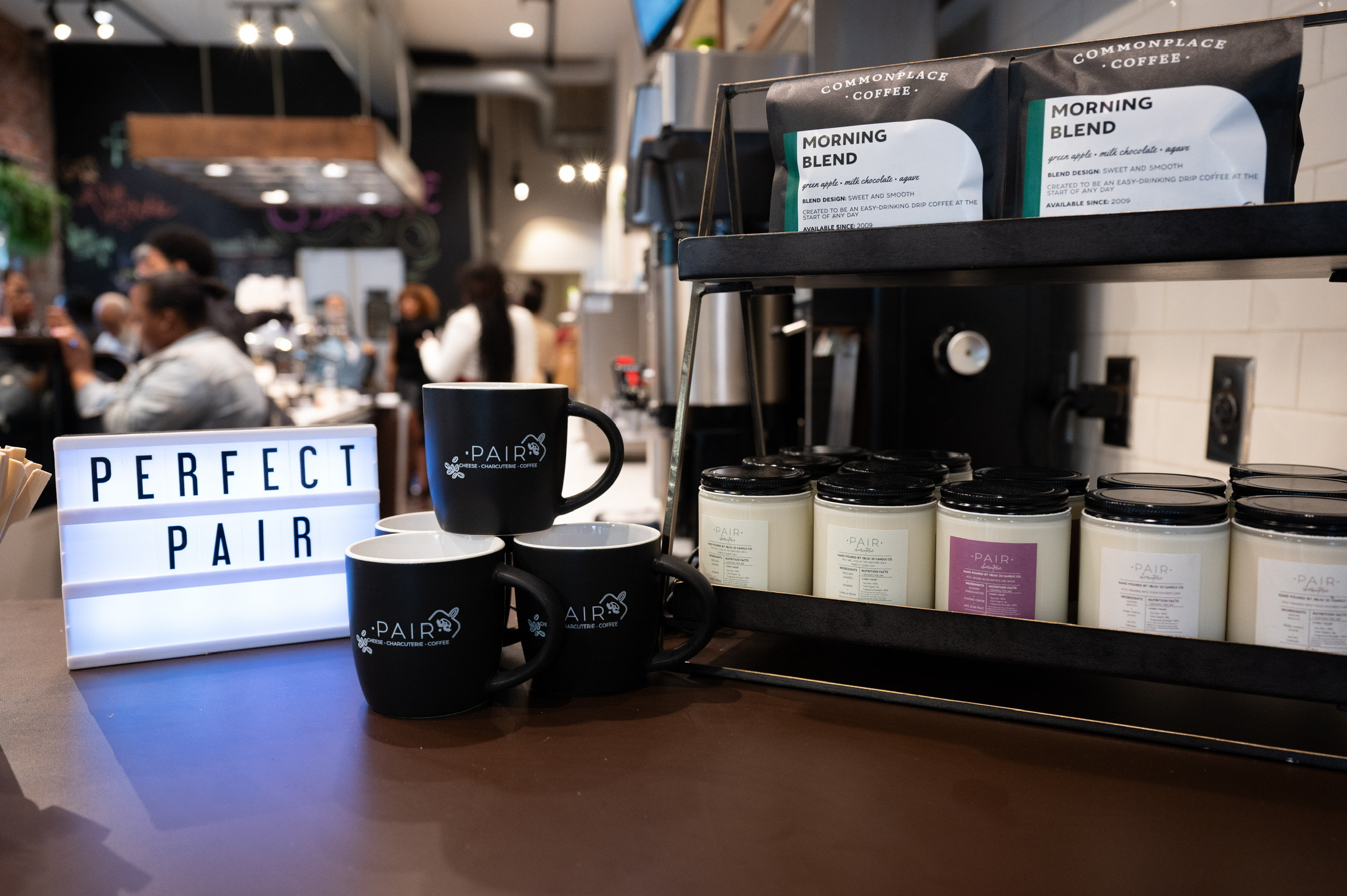
Pair Charcuterie opened a pop-up in Pittsburgh this spring after Shaquala Swinton-Betts founded business on Instagram in 2022. It features a coffee bar; provides cheese boards, cured meats and brunch boxes; holds events; and offers catering. Photo credit: Pair Charcuterie
By Joe Gose
Contributor, Commerce + Communities Today